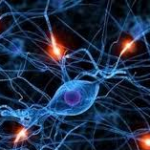 Neurotransmitters, such as serotonin, dopamine and norepinephrine, are responsible for transferring chemical messages in the brain and body. Neurotransmitter imbalances can therefore lead to improper signals being sent and/or an inability to properly transmit and interpret information, which can lead to a number of diseases and disorders, including depression, migraines, cravings and binging behaviors. In addition, imbalances in neurotransmitter function, especially dopamine, are also at the root of many addictive-type behaviors.
Neurotransmitters, such as serotonin, dopamine and norepinephrine, are responsible for transferring chemical messages in the brain and body. Neurotransmitter imbalances can therefore lead to improper signals being sent and/or an inability to properly transmit and interpret information, which can lead to a number of diseases and disorders, including depression, migraines, cravings and binging behaviors. In addition, imbalances in neurotransmitter function, especially dopamine, are also at the root of many addictive-type behaviors.
Addiction is defined as the continued use of a mood altering substance or behavior despite adverse dependency consequences. Classic hallmarks of addiction include: impaired control over substances or behaviors, preoccupation with substances/behaviors, continued use despite consequences and denial. Physiological dependence often occurs when the body adjusts its normal functioning to adapt to the substances being used, which creates tolerance and withdrawal. Tolerance is the process by which the body continually adapts to the substance and requires increasingly larger amounts to achieve the original effects. Withdrawal refers to the physical and psychological symptoms experienced when reducing or discontinuing a substance that the body has become dependent upon.
From a neurotransmitter imbalance standpoint, we often work with people with addictions to gambling, risk-taking, sex and drugs–especially alcohol, cocaine, morphine, nicotine, amphetamines (including many weight-loss medications)–and foods (especially sugar and sweets).
Part 2 of this series will look at what neurotransmitters are involved in addiction.
